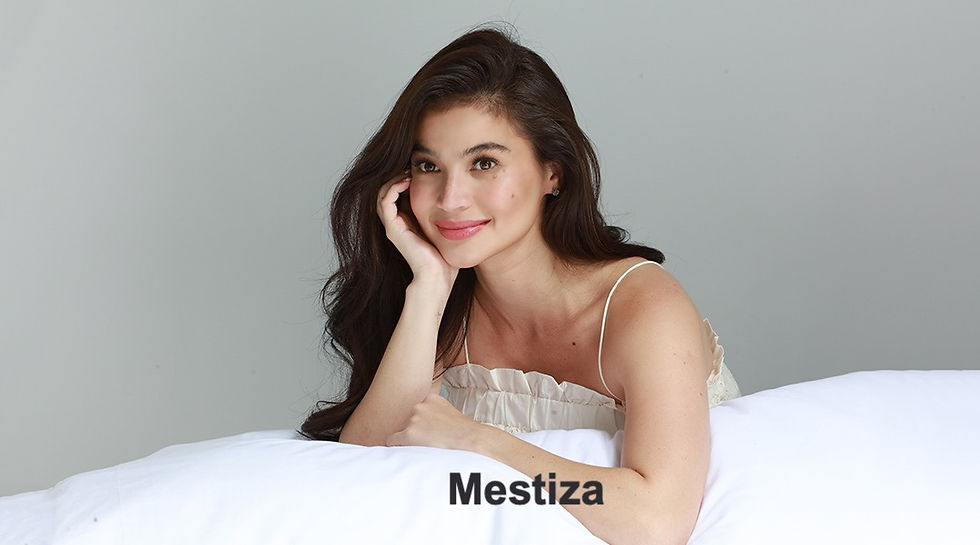Growing Up as a Filipina by Kay
- Jul 8, 2020
- 5 min read
Editors Note: Hey guys, Roann here! In my last post, I opened up this space to everyone who wanted to share their stories. The response to this has been overwhelming and I couldn't be happier to hand it over to some incredible people with unique and educational perspectives. They have all written pieces aimed to bring light to issues and experiences outside and inside of their communities; covering topics from racism, sexuality, religious beliefs and so much more. After reading be sure to follow @platform_blog on insta to interact with the writers behind the stories.

When people think of Asians, what usually comes to mind is what they have seen in the media. Often grouping the whole continent’s population to have the same traits, physical features, accent etc. Even going as far in thinking that Asia consists of just countries in the East.
A common misconception of Asians as a whole is that we are automatically smart just because of our race. Disregarding all of the hard work that they have put in to get those high grades. Not only does it downplay their efforts, but it has a mental strain which can often make them feel as if they are less than worthy of being ‘Asian’ if they don’t excel academically.
I remember when I was still in secondary school, people would see my grades and say things like, “Oh, of course, Kay got those grades, she’s Asian,” or if a test would be coming up and I would be stressed I would get told, “You don’t need to revise, you’re Asian.” In fact, I was nicknamed as “My Asian” by some people who I regarded as 'friends'; as if I were a token friend. Yet, I tolerated it because at the time I wanted nothing more than to feel accepted. In Sixth Form, I remember being in art class and friends of mine at the time were mocking ‘Asian’ accents and I was too afraid to speak out in fear that I wouldn’t be taken seriously. ‘Asian accents’ are a colonised myth that generalises one of the biggest continents on earth to have one accent, but yet people don’t say that French and British accents sound the same and despite Europe being much smaller than Asia.
Growing up Filipino in a predominantly white neighbourhood and being only one of three POC in my class (and the only girl who was not white), I wanted to be like the other girls so badly that I remember wishing I had blonde hair. When we would pretend to be characters, I would want to be Gabriella from High School Musical, but was told I couldn’t be her because she was white (when she’s also half Filipino). I wasn’t allowed to be any Disney princess aside from Mulan or Pocahontas. As a child, this programmed me to believe that white people were superior and unless I was given permission by them, I wasn’t allowed to be who I wanted to be. This led to years of trying to hide my culture and refusing to accept that I was different in order to be liked by my peers, which included accepting the hidden forms of racism that were said to me and a build-up of insecurities.
The root of the issue lies underneath all the media I consumed as a child. It held primarily white protagonists and the POC characters were always just the sidekicks. Even in Filipino media, most celebrities are fair-skinned due to skin lightening, as many are ‘mestizo/mestiza’, which are mixed Filipinos or those who look more Eurocentric. This issue dates back to colonialism, when the Spanish colonisers saw themselves as superior to the darker-skinned Filipinos, consequently creating colourism within the community. Many Filipinos believe that if you have lighter skin, you are more beautiful, which creates self-hatred within those with deeper complexions, despite Morena skin (brown-skinned Filipinos) being the natural colour of Filipinos.


While both women shown are beautiful, many Filipinos will prefer the skin of Anne Curtis (top picture), as she is fair-skinned. Many will bleach their skin to achieve this, however, the ads for the skin whitening products are harmful and suggest that once you have whiter skin, your life will be less dull and you’ll be treated better. As someone who is a fairer skinned Filipina, I can sadly confirm that there is truth in this, as I’ve always been complimented by Filipino relatives on how ‘white’ my skin is and how I’ve inherited it from my mum, who is very fair in complexion. This mindset is harmful as the melanin produced in our skin protects us from sun damage, which is needed especially in the Philippines as it is a tropical country.

However, times are changing and more of the younger generation are starting to embrace their natural skin colour as the movement Magandang Morena (translated to beautiful brown skin) has been a result of this, which I hope will only grow in success.

While I still have your attention, I’d like to shed some light on a major issue that is relevant to current events, the Anti-Terrorism Bill in the Philippines. The bill claims to only target terrorists, yet it also states that sharing any media that seems to go against the government is punishable for up to 12 years - this also includes memes. This strips citizens of free will as it basically implies that if you do not agree with the government, then your thoughts are invalid and are worthy of jail time, which sounds a little too close to communism. The bill essentially allows the government to abuse their power on what it means to be a terrorist as it criminalises anything that goes against them. Donating or helping relief drives that aren’t state-recognized is also seen as a terror attack, despite the intention of giving aid is pure, and would categorise those who just want to provide help as terrorists. Police are also allowed to arrest without a warrant and suspected terrorists can be held in a detention facility for up to 24 days before standing in court for a trial. The whole bill is a human rights violation that treats its citizens as second class to the government as the government’s ideals are favoured over its own people.
I’ll end this post with a phrase commonly used by protestors of the bill which can also be applied to all active movements fighting for change, as if you do not speak up, then how can you expect change? Activism is not terrorism.
Below are some links that will take you to pages where you can sign petitions and find out more about the movement:

The first writer featured is Kay! I first met Kay at a FilSoc games night at uni and I remember thinking she had such a lovely smile, perfect for a Kent Cheerleader :) She is an architecture undergrad and a very talented artist, so give her art page a follow:
Head over to @platform_blog to join Kay for a q&a from 1pm.
Have a story to share? DM me on insta @platform_blog or comment down below to get in touch.




Comments